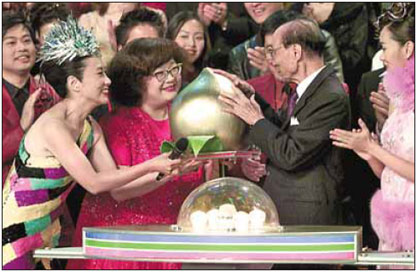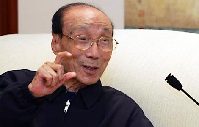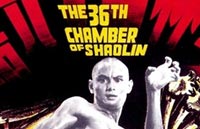|

Run Run Shaw receives a birthday present of a golden peach from Hong Kong actresses during the TVB 34th Anniversary Special in Hong Kong in 2001. Kin Cheung / Reuters / Files
|
TV dominance
If Shaw misjudged the final golden age of Hong Kong cinema, he was prescient about the dawn of the television business. As his influence in movie production waned in the late 1970s and early '80s, his investment in Television Broadcasts Ltd grew constantly. Eventually, he became the largest shareholder and, in 1980, when the original owner died, Shaw assumed control and turned TVB into the world's largest privately owned producer of Chinese-language TV content.
Shaw leased his own vacant film production facilities to his television production company. He employed his old strategies, such as programming self-produced content and rarely buying shows from outside sources. Again, the management of cost and talent was his forte, and the policy of preemptive strikes first used in 1930s Shanghai and perfected in the 1960s was once again employed. When rival ATV was making a series about Genghis Khan, TVB jumped ahead with its own version. Unlike the film market, Shaw's TV dominance has never been challenged in Hong Kong, and TVB has enjoyed market share as high as 80 percent throughout much of its existence.
One byproduct of his TV empire are the big-name stars that have towered over Chinese-language cinema in recent decades. Luminaries such as Chow Yun-fat, Andy Lau, Tony Leung Chiu-wai and Stephen Chow are all graduates of Shaw's TVB actor training classes, while others, such as Maggie Cheung, Leslie Cheung, Jacky Cheung and Leon Lai, were discovered in singing contests or beauty galas organized by TVB, a veritable star-making machine only rivaled in the Chinese-speaking world by the State-owned China Central Television, and then only during the past decade.


